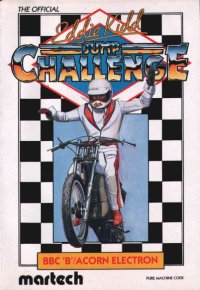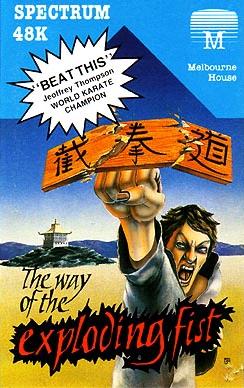
The Way of the Exploding Fist is a 1985 fighting game based on Japanese martial arts developed by Beam Software, by a team consisting of Gregg Barnett, Bruce Bayley, Neil Brennan and David Johnston. Originally developed on the Commodore 64 and published in June 1985 by Melbourne House, ports were made for Amstrad CPC, ZX Spectrum, BBC Micro, Acorn Electron and Commodore 16.
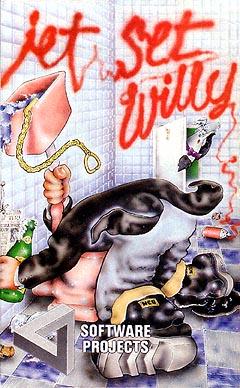
Jet Set Willy is a platform video game written by Matthew Smith for the ZX Spectrum home computer. It was published in 1984 by Software Projects and ported to most home computers of the time.
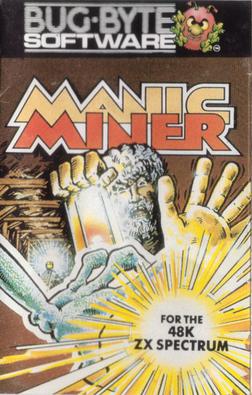
Manic Miner is a platform game written for the ZX Spectrum by Matthew Smith. It was published by Bug-Byte in 1983, then later the same year by Software Projects. The first game in the Miner Willy series, the design was inspired by Miner 2049er (1982) for the Atari 8-bit computers. Retro Gamer called Manic Miner one of the most influential platform games of all time, and it has been ported to numerous home computers, video game consoles, and mobile phones.

Underwurlde is a 1984 action-adventure platform video game in the Sabreman series by Ultimate Play the Game for the ZX Spectrum and Commodore 64. The player controls the adventurer Sabreman as he jumps between platforms in a castle and its caverns to find an escape past the exit guardians. Underwurlde features about 600 flip screen areas. Unlike other games of its time, Sabreman is not injured when touched by enemies and is instead knocked backwards. Underwurlde is the second game in the series, between Sabre Wulf and Knight Lore, and released shortly before the latter for the ZX Spectrum in late 1984. Another developer, Firebird, ported the game to the Commodore 64 the next year.

Jet Set Willy II: The Final Frontier is a platform game released 1985 by Software Projects as the Amstrad CPC port of Jet Set Willy. It was then rebranded as the sequel and ported to other home computers. Jet Set Willy II was developed by Derrick P. Rowson and Steve Wetherill rather than Jet Set Willy programmer Matthew Smith and is an expansion of the original game, rather than an entirely new one.

Artic Computing was a software development company based in Brandesburton, England from 1980 to 1986. The company's first games were for the Sinclair ZX81 home computer, but they expanded and were also responsible for various ZX Spectrum, Commodore 64, BBC Micro, Acorn Electron and Amstrad CPC computer games. The company was set up by Richard Turner and Chris Thornton. Charles Cecil, who later founded Revolution Software, joined the company shortly after it was founded, writing Adventures B through D. Developer Jon Ritman produced a number of ZX81 and Spectrum games for Artic before moving to Ocean Software.

Stop the Express (also known as Bousou Tokkyuu SOS is a video game developed by Hudson Soft and published in 1983. It was written for the Sharp X1 and later ported to the ZX Spectrum, Commodore 64, and MSX.
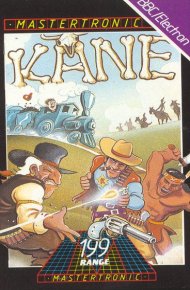
Kane is a multi-section action game published by Mastertronic for the Commodore 64 in 1986. It was ported to the Acorn Electron, Amstrad CPC, BBC Micro, ZX Spectrum, and the Commodore 16 and Plus/4. The game is set in the Wild West, and its name is a reference to the main character of the film High Noon. It consists of four distinct scenes, although some versions only contain two. A sequel was released in 1988.

Hunchback is a video game developed by Century Electronics and published in arcades in 1983. The game is loosely based on the 1831 Victor Hugo novel The Hunchback of Notre-Dame and the player controls Quasimodo. Set on top of a castle wall, the player must guide the Hunchback from left to right while avoiding obstacles on a series of non-scrolling screens. The goal of each screen is to ring the church bell at the far right.
Alligata Software Ltd. was a computer games developer and publisher based in Sheffield in the UK in the 1980s.

Enduro Racer (エンデューロレーサー) is an arcade racing game from Sega. It was released in 1986 with two arcade cabinet versions, a stand-up cabinet with handlebars and a full-sized dirt bike cabinet. It is often seen as a dirt racing version of Hang-On, as it uses a similar engine and PCB. The game was later released for the Master System in 1987, the ZX Spectrum and Commodore 64 in 1988, and the Amstrad CPC and Atari ST in 1989.

Colossus Chess is a series of chess-playing computer programs developed by Martin Bryant, commercially released for various home computers in the 1980s.

Superman: The Game is a 1985 video game designed by Fernando Herrera and published in the US by First Star Software for the Commodore 64. For European release, Superman was ported the Acorn Electron, Amstrad CPC, Atari 8-bit computers, BBC Micro, and ZX Spectrum.
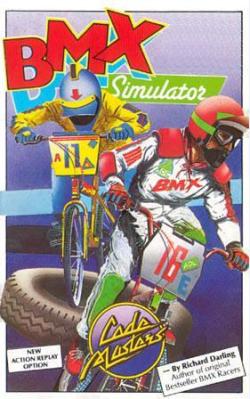
BMX Simulator is a racing video game designed by Richard Darling and released by Codemasters in 1986 for the Commodore 64. It is part of a series of games that includes ATV Simulator, Grand Prix Simulator, Professional Ski Simulator, and a sequel: Professional BMX Simulator. BMX Simulator was ported to the Amiga, Atari 8-bit computers, Atari ST, Amstrad CPC, MSX, ZX Spectrum, Commodore Plus/4 and Commodore 16.
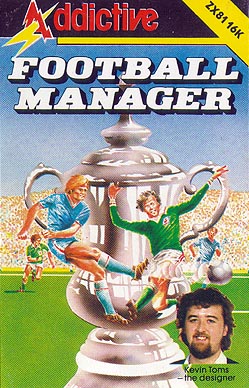
Football Manager is the first game in the Football Manager series.

Brian Clough's Football Fortunes is a sports video game featuring English football player Brian Clough. It was released in 1987 for the Amiga, Amstrad CPC, Amstrad PCW, Atari 8-bit computers, Atari ST, BBC Micro, Commodore 16, Plus/4, Commodore 64, MS-DOS, Acorn Electron, MSX, and ZX Spectrum.

Survivors is a puzzle video game published by Atlantis Software in 1986 for the ZX Spectrum. It was ported to the MSX, Atari 8-bit computers, Commodore 64, Commodore 16, Acorn Electron, and BBC Micro and the Amstrad CPC (1988). It is based on the "rocks and diamonds" mechanics of Boulder Dash.
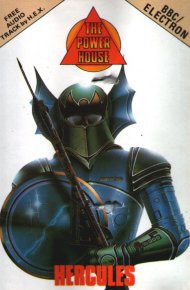
Hercules is a platform video game written by Steve Bak for the Commodore 64 and published by Interdisc in 1984. It was reissued in 1986 by Alpha Omega and ported to the Acorn Electron, BBC Micro, Commodore 16, Plus/4, and ZX Spectrum. Alpha Omega changed its name to The Power House shortly after publishing the game.
Bubble Bus Software was a publisher of video game software for home computers in the mid-1980s, founded by Mark Meakins and based in Tonbridge, Kent. Their releases targeted popular home computers of the time, such as the Commodore 64, VIC-20 and ZX Spectrum. Their most notable releases were Starquake and Wizard's Lair, both written by Stephen Crow. Wizard's Lair was notable for its similarity to both Atic Atac and Sabre Wulf.
